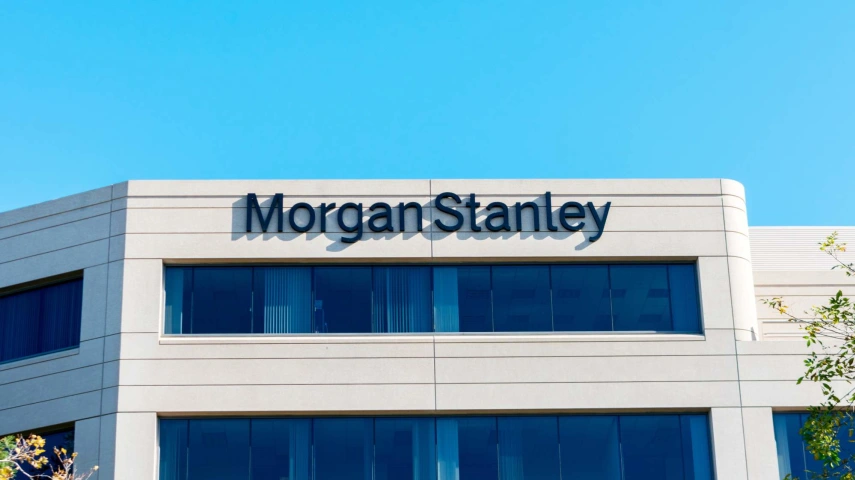Morgan Stanley in crosshairs as Icahn losses mount



A US law firm is now chasing down investors who suffered losses “at the hand of investment advisers” and directing them into Icahn Enterprises securities.
US-based law firm KlaymanToskes is on the hunt for investors impacted by the Hindenburg Research short-seller attack on billionaire Carl Icahn’s Icahn Enterprises (NASDAQ: IEP). The stock is trading at a 52-week high of US$55.55 and a low of US$28.29. It closed at US$34.12 on Monday.
KlaymanToskes released a statement on 12 May encouraging Icahn Enterprises investors “who suffered investment losses at the hands of their broker/investment advisor to contact the firm immediately”.
“KlaymanToskes reports that Icahn Enterprises share prices have fallen dramatically, following the company’s 40 per cent drop and plunge to a 52-week low last week. The crash came after Hindenburg Research published a report which alleged the company has ‘Ponzi-like economic structures’,” the law firm said.
“A regulatory filing made one day after Hindenburg Research’s report revealed that the U.S. Attorney’s office for the Southern District of New York contacted Icahn Enterprises for information related to corporate governance, capitalization, securities offerings, due diligence and other materials,” it said.
“According to a Prospectus Supplement filing, Morgan Stanley & Co. LLC was the sole book-running manager of Icahn Enterprises’ sale of two million depositary units.”
IEP’s share price plunged from around $50 on 1 May to record low of $30 on 4 May. The sell-off was triggered by a widely publicised report from Hindenburg Research released on 2 May.
Titled Icahn Enterprises: The Corporate Raider Throwing Stones From His Own Glass House, it accused Icahn of using money taken from new investors to pay out dividends to old investors.
“Such Ponzi-like economic structures are sustainable only to the extent that new money is willing to risk being the last one ‘holding the bag’,” the report said.
Jefferies ‘luring’ investors
The report also accused global investment bank Jefferies of malpractice.
“Supporting this structure is Jefferies, the only large investment bank with research coverage on IEP,” the report said.
“It has continuously placed a ‘buy’ rating on IEP units. In one of the worst cases of sell-side research malpractice we’ve seen, Jefferies’ research assumes in all cases, even in its bear case, that IEP’s dividend will be safe ‘into perpetuity’, despite providing no support for that assumption,” it said.
“Since 2019, one bank has run all of IEP’s $1.7 billion in ATM offerings: Jefferies. In essence, Jefferies is luring in retail investors through its research arm under the guise of IEP’s ‘safe’ dividend, while also selling billions in IEP units through its investment banking arm to support the very same dividend.”
Icahn fired back at Hindenburg in a trading update on 2 May, accusing the “self-serving short seller report” of its intentions to generate profits on Hindenburg’s short position at the expense of IEP’s long-term unitholders.
“We stand by our public disclosures, and we believe that IEP’s performance will speak for itself over the long term as it always has,” Icahn said.
“Today, IEP operates from a position of strength with approximately $2 billion of cash and cash-equivalents on its balance sheet as of 31 March 2023 to execute on our strategy,” stated Carl Icahn, chairman of the board of Icahn Enterprises.
Hindenburg shorts Icahn bonds
Hindenburg Research has since doubled down on its position. On 11 May, the group – which was also behind a massive short attack on Indian mining giant Adani – published its latest report.
It accused Carl Icahn of pledging his IEP units for “billions in margin loans” and reinvesting up to US$3.4 billion in proceeds into his investment funds, which the report claims generated losses of roughly 53 per cent between 2014 and 2022.
“Our analysis, based on IEP’s filings, shows that despite Icahn’s investment funds generating 53 per cent losses from 2014 to 2022-year end, Icahn’s personal investment increased, potentially owing to him drawing new cash from margin pledges which was then reinvested in the funds,” the report said.
Hindenburg disclosed that in addition to being short units of Icahn stock, it has now taken a short position on IEP bonds.
"Hindenburg Research, founded by Nathan Anderson, would be more aptly named Blitzkrieg Research given its tactics of wantonly destroying property and harming innocent civilians,” Mr Icahn said.
“Mr. Anderson’s modus operandi is to launch disinformation campaigns to distort companies’ images, damage their reputations and bleed the hard-earned savings of individual investors. But, unlike many of its victims, we will not stand by idly. We intend to take all appropriate steps to protect our unitholders and fight back.”
Last week IEP reported a first quarter net loss of US$270 million for the three months to 31 March.
The group reported an indicative net asset of US$5.6 billion. It has a market cap of approximately US$12 billion.
Carl Icahn was known as a corporate raider during the 1980s when he led a hostile takeover of TWA before stripping the airline’s assets and netting a significant windfall. The move made major headlines at the time and inspired a plotline for the 1987 major motion picture Wall Street.
Icahn was a special adviser to President Trump during his first year in the White House.
The Florida-based billionaire famously left Trump’s election victory party at 2am after watching the futures market collapse and immediately started buying.
He stated that he managed to put a billion dollars to work before the market got away from him. In 2016 he told CNBC that Trump’s victory triggered Dow futures to plummet by more than 800 points, which he described as win, and said it made sense to “play the market.”
Recommended for you
Lonsec and SQM Research have highlighted manager selection as a crucial risk for financial advisers when it comes to private market investments, particularly due to the clear performance dispersion.
Macquarie Asset Management has indicated its desire to commit the fast-growing wealth business in Australia by divesting part of its public investment business to Japanese investment bank Nomura.
Australia’s “sophisticated” financial services industry is a magnet for offshore fund managers, according to a global firm.
The latest Morningstar asset manager survey believes ETF providers are likely to retain the market share they have gained from active managers.
















All these ppl should be in prison